Bourses de recherche

Adebayo Akinade.
Biographie à suivre
Titre du projet : À suivre.

Alejandra Valentina Gonzalez Rodriguez
Biographie à suivre
Titre du projet : À suivre.

Amélie Boutin, Carleton University, Department of Biology, Environment and Climate Change Canada, Science and Technology Branch
Amélie Boutin is a Master’s student in Biology at Carleton University, conducting her research in affiliation with Environment and Climate Change Canada. She completed her BSc at the University of Ottawa, where she investigated how landscape composition influences turtle abundance in wetlands. For her MSc research, Amélie draws on her background in landscape ecology to address questions within a One Health framework. Her current work focuses on identifying landscape-level risk factors for the transmission of Highly Pathogenic Avian Influenza (HPAI) at the wild bird-domestic poultry interface. By comparing the farm-level, local, and regional landscapes surrounding both infected and non-infected commercial poultry farms in southern Ontario, she aims to determine whether and how a farm’s location influences its risk of HPAI outbreak. Findings from this research will help inform practical recommendations for land-use planning, farm biosecurity, and habitat management to reduce future outbreak risk.
Titre du projet : Landscape Drivers of Wildlife-to-Poultry Transmission of Highly Pathogenic Avian Influenza (HPAI) H5N1 in Ontario.
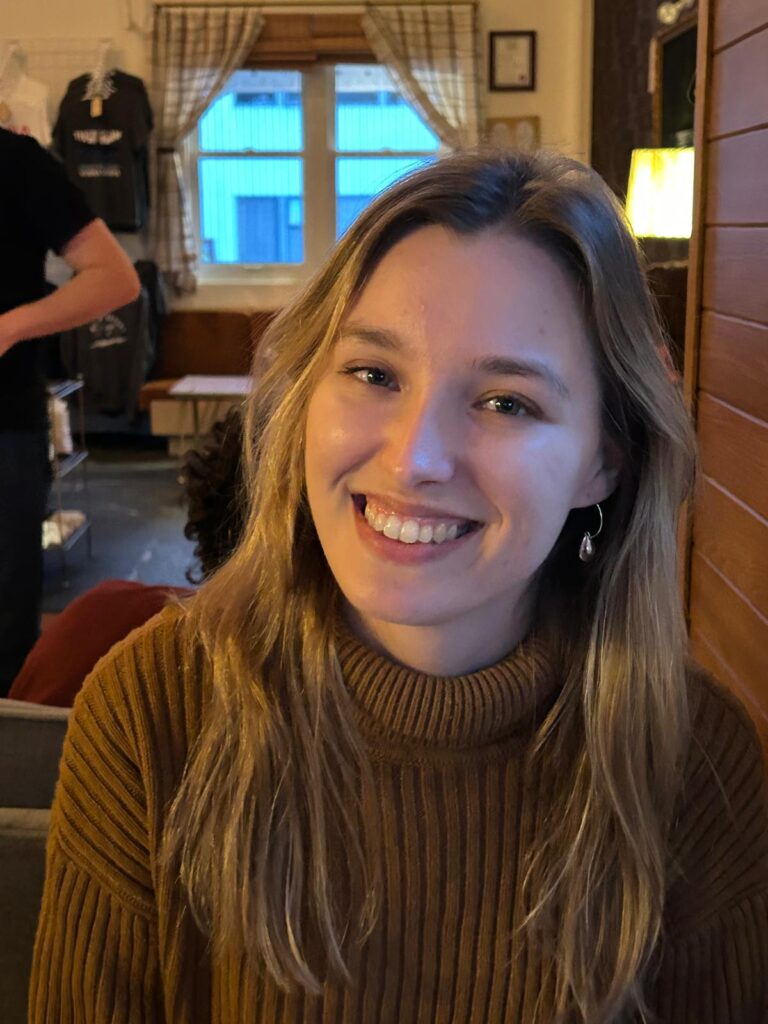
Angel Kennedy, Faculty of Health Sciences, Simon Fraser University
Angel Kennedy is an SFU PhD candidate in the Faculty of Health Sciences at Simon Fraser University, and a Research Manager for the Research for Eco-Social and Equitable Transformation (RESET) Lab. Angel’s research often explores connections across One Health, Ecohealth, and Planetary Health frameworks. Her doctoral research directly addresses a prevalent challenge of One Health: understanding how to genuinely value human, animal, and ecosystem realities together. The research investigates integrative convening spaces where these three areas of health are intentionally connected. By concentrating on youth- and early career-led initiatives, the study aims to capture how a new generation is moving beyond disciplinary silos to reimagine integrative approaches to health through practices of connection and relationality.
Titre du projet : Relational Resilience: Advancing One Health and Zoonotic Disease Preparedness through Global Connection and Collaboration.
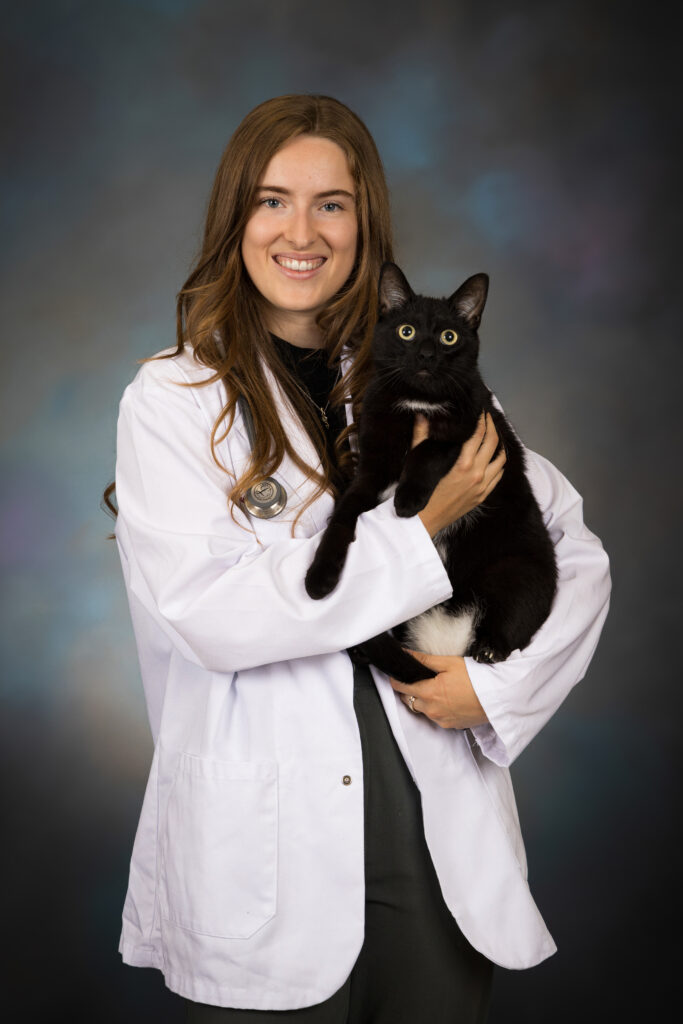
Ariane Pagé, Département de pathologie et microbiologie de la Faculté de médecine vétérinaire de l’Université de Montréal, Groupe de Recherche en Épidémiologie des Zoonoses et Santé Publique (GREZOSP)
Vétérinaire récemment diplômée, Dre. Ariane Pagé a décidé de saisir l’opportunité de contribuer au progrès de la science en poursuivant son parcours universitaire au cycle supérieur. Maintenant étudiante à la maîtrise en sciences vétérinaires à l’Université de Montréal, elle cherche à approfondir les innombrables facettes et ramifications de l’approche Une seule santé. Elle est inspirée par la perspective selon laquelle ses compétences vétérinaires peuvent avoir un impact au-delà de la santé animale et souhaite en explorer les multiples applications.
Titre du projet : Évaluation des concentrations de cortisol dans le qiviut comme biomarqueur de la santé des individus et des populations chez les bœufs musqués.

Brenda Zai, Department of Population Medicine, University of Guelph (ORCiD)
As climate change advances, the safety of Canada’s agri-food systems faces growing challenges. Rising temperatures, shifting precipitation patterns, and an increase in extreme weather events can heighten the risk of contamination in preharvest foods, increasing the likelihood of food- and waterborne illnesses among consumers.
Brenda’s PhD research examines these emerging climate-sensitive preharvest food safety risks in the Canadian agri-food sector. Using a mixed-methods approach, her work identifies priority hazards and models the relationships between biological and chemical contaminants and climate variables. By integrating this evidence, Brenda’s research aims to inform mitigation and adaptation strategies that strengthen climate resilience, protect public health, and ensure the long-term safety of Canada’s food supply. She also advocates for greater recognition of the food system within the One Health framework, emphasizing its critical role in the interconnected health of people, animals, and the environment.
Titre du projet : Climate and preharvest food safety: A mixed methods approach to prioritize and forecast future contamination risks under a changing climate..
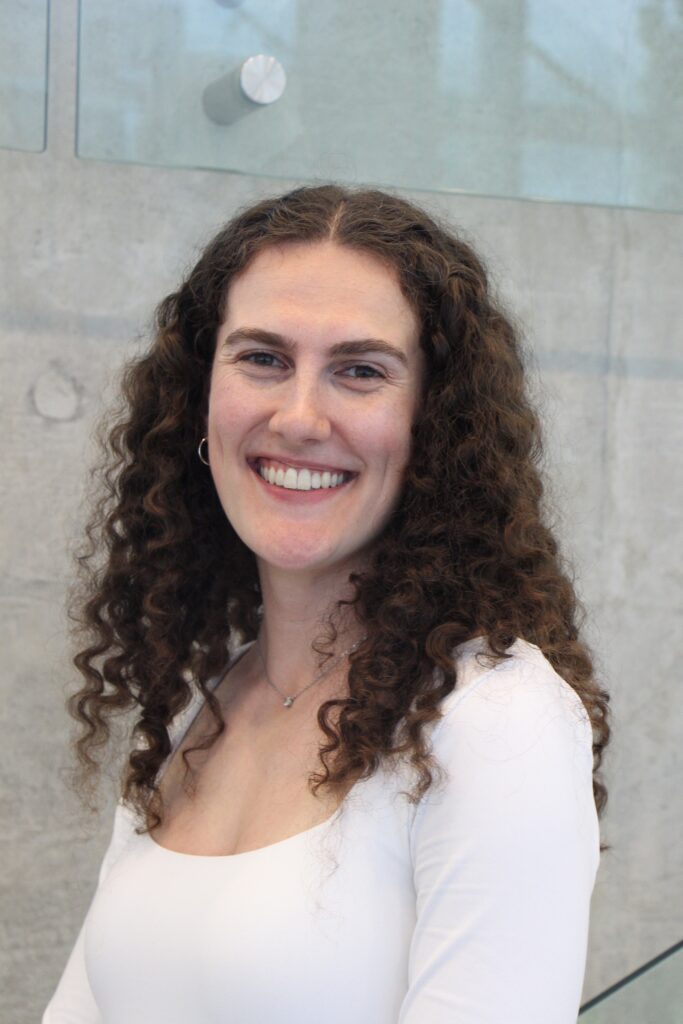
Carys Vyn, Department of Population Medicine, Ontario Veterinary College, University of Guelph
Carys Vyn is a PhD candidate in Epidemiology at the Ontario Veterinary College, specializing in One Health approaches to infectious disease modelling. Her research focuses on leptospirosis, a neglected, climate-sensitive zoonotic disease that affects both animals and humans. Carys integrates machine learning, Bayesian modelling, and GIS tools to investigate how environmental and socioeconomic conditions influence the spatial and temporal patterns of canine leptospirosis in Canada and the United Kingdom. By generating risk maps and identifying high-risk populations, her work contributes to more comprehensive surveillance and mitigation efforts. Through a One Health approach, she addresses the complex interplay of climate, animal hosts, and human activity in shaping disease risk. Carys’ research contributes to a deeper understanding of how the socioecological system influences emerging infectious diseases and supports evidence-based prevention strategies at the human–animal–environment interface.
Titre du projet : Environmental and Socioeconomic Determinants of Canine Leptospirosis in Canada and the United Kingdom

Celine Tan, Department of Laboratory Medicine and Pathobiology, University of Toronto and Sunnybrook Research Institute
Celine is starting as a master’s student in the Department of Laboratory Medicine and Pathobiology at the University of Toronto under the supervision of Dr. Samira Mubareka. She earned her Bachelor’s degree in June at the University of Toronto in Biochemistry and Immunology. Her research focuses on developing molecular tools to study wildlife host immune response to emerging viral pathogens.
Titre du projet : Development of molecular tools to study innate immune responses in Peromyscus as important wildlife reservoir species for emerging zoonotic viruses
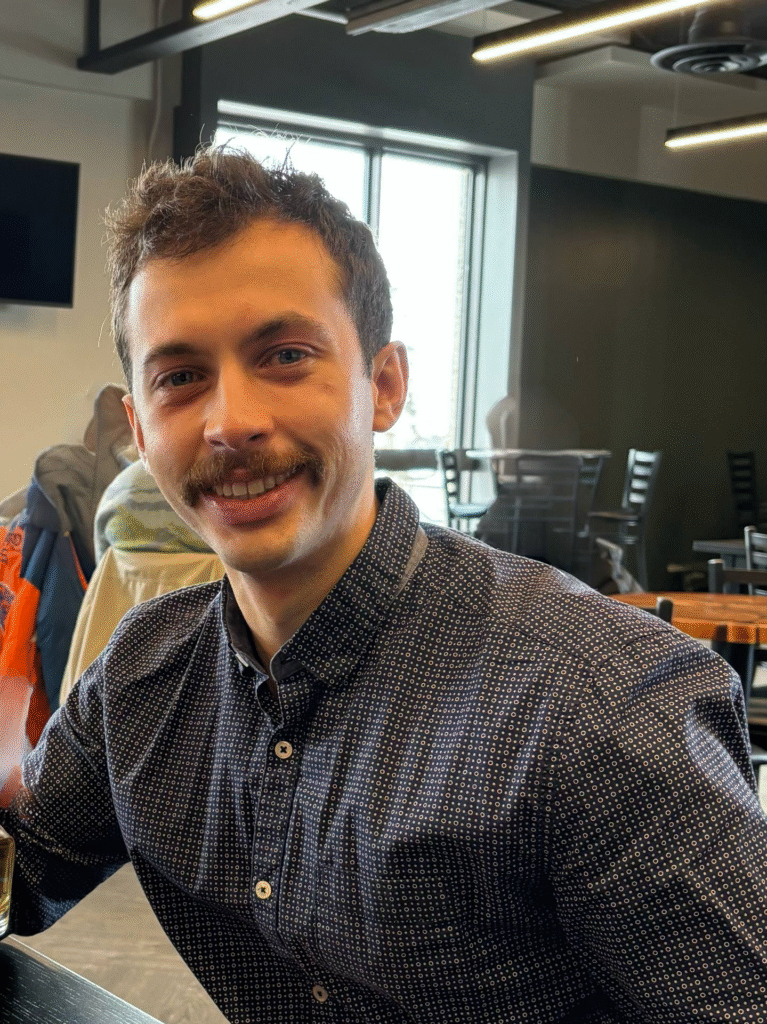
Charlie Chettleburgh, School of Environmental Sciences, University of Guelph, µSCAPE: Surveillance for Control of AMR & Pathogens in the Environment
Charlie is a PhD student whose research interests lie at the intersection of microbiology, environmental science, and public health. He holds a BSc in Microbiology and an MSc in Environmental Science from the University of Guelph and has nearly five years of experience in wastewater-based epidemiology. Charlie’s previous research has focussed on the spatial and temporal variation of microbial source tracking markers, as well as the seasonality of enteric viruses in wastewater. Building on this foundation, Charlie aims to contribute to the protection of aquatic ecosystems and human health by collaborating with transdisciplinary stakeholders across academia, government, and industry. Charlie currently studies how stormwater biofilters can be designed and controlled to promote the growth of a microbiome that facilitates improved rates of pathogen removal.
Titre du projet : Microbial Community Dynamics in Stormwater Biofilters.

Christian Diene Faye, École de santé publique de l’Université de Montréal
Je poursuis actuellement un doctorat en santé publique à l’Université de Montréal, sous la supervision des professeurs François Castonguay et Ariane Adam-Poupart. Vétérinaire diplômé de l’École Inter-États des Sciences et Médecine Vétérinaires (EISMV) de Dakar (Sénégal), je détiens également une maîtrise en épidémiologie (EISMV) ainsi qu’une maîtrise en santé publique, option recherche, de l’Université de Montréal. Sur le plan professionnel, j’ai contribué à divers projets de surveillance de la résistance aux antimicrobiens (RAM). Plus récemment, j’ai occupé le poste d’épidémiologiste (APPR) à la Direction de santé publique du CISSS de l’Abitibi-Témiscamingue, où j’étais chargé, entre autres, de la surveillance et la vigie des maladies infectieuses. Mes intérêts de recherche portent sur les approches intégrées en santé (Une seule santé), ainsi que sur l’évaluation des interventions en santé publique visant à prévenir les maladies infectieuses (et la RAM) et à améliorer la santé des populations.
Titre du projet : Évaluation du fardeau économique des maladies à transmission vectorielle dans un contexte de changements climatiques évolutifs : cas de la maladie de Lyme et de l’infection par le virus du Nil occidental au Québec à l’horizon 2050.

Diana Yang, Department of Immunology, University of Toronto
Diana Yang is a PhD student in Immunology at the University of Toronto, studying under the supervision of Dr. Rupert Kaul. She earned her BSc in Biological Sciences from Simon Fraser University, where she first developed her interests in infectious diseases and human pathogens. As part of her doctoral studies, Diana is interested in exploring how pre-existing human immune parameters may offer protection against subsequent viral respiratory infections. Diana hopes her research will contribute to the ongoing work on emerging zoonotic pathogens of concern. Outside of her studies, Diana is passionate about community building and foraging. When she is not in the lab, you can find her serving up yummy treats at the local HIV specialty hospital, Casey House.
Titre du projet : Defining the impact of pre-existing immune parameters on subsequent viral, respiratory infections.

Faustin Farison, Département de pathologie et microbiologie, Faculté de médecine vétérinaire, Université de Montréal, Chaire de recherche de biosécurité en production laitière, Université de Montréal, Regroupement FRQNT Op+Lait
Faustin Farison est candidat au doctorat en sciences vétérinaires option épidémiologie à la Faculté de Médecine Vétérinaire de l’Université de Montréal. Il est diplômé de l’école d’agronomie de Bordeaux Sciences Agro et du master de surveillance épidémiologique de l’école vétérinaire d’Alfort. Lors de ses différentes expériences, il a travaillé sur diverses problématiques de santé des bovins dont la transmission de la tuberculose bovine lors des contacts entre faune sauvage et animaux.
Son projet de doctorat se trouve à l’interface des sciences informatiques, systèmes d’élevage et santé animale. Il cherche à développer et valider l’utilisation d’outils d’intelligence artificielle pour améliorer la biosécurité dans les troupeaux laitiers canadiens et ainsi diminuer l’impact et le fardeau des maladies. L’utilisation de ces outils, encore peu fréquente dans le domaine des maladies animales, pourrait permettre une détection précoce et un réponse efficace face au défi de représentent ces dernières.
Titre du projet : Développement et validation d’outil d’intelligence artificielle pour l’amélioration de la biosécurité dans les troupeaux laitiers canadiens.

Ivana Blagojevic, University of Guelph, Spence Lab
Ivana is an epidemiologist in training pursuing a PhD within the department of Population Medicine at the University of Guelph. Her research interests are focused on understanding uptake of tick bite and tick-borne disease prevention measures by dog and cat caregivers. She incorporates One Health approaches in understanding how the human-animal bond influences adoption of prevention measures within the context of climate change. Ivana’s interests were developed from her childhood experiences caring for animals and later, working in veterinary hospitals. Prior to her PhD, she completed an undergraduate degree in Animal Biology and an MSc at the University of Guelph where she surveyed an emerging zoonotic canine fecal parasite in southern Ontario. Ivana is involved in the University of Guelph One Health community serving as Co-President for the One Health Student Committee (OHSC). Outside of research, she enjoys spending time outdoors, reading and playing pickleball.
Titre du projet : Identifying motivators and barriers in the implementation of tick prevention measures by dog and cat caregivers.

Jessica Manalaysay, Department of Chemistry & Biochemistry, University of Lethbridge & Vector-Borne Disease Unit, National Center for Animal Disease, Canadian Food Inspection Agency
I am a PhD student in Biomolecular Science at the University of Lethbridge, Canada, specializing in molecular diagnostics, virology, and infectious disease research. Originally from the Philippines, I moved to Canada in 2022 to pursue my doctoral studies. I am also affiliated with the Canadian Food Inspection Agency’s Centre for Vector-Borne Diseases, where my research focuses on arbovirus surveillance in biting midges and mosquitoes, as well as the development of molecular assays for vector identification. Through my work, I aim to contribute to the early detection and prevention of vector-borne diseases.
Titre du projet : Ecology of Arthropod Vectors and Arboviruses of Veterinary Importance in Canada.

Kylee Graham
Biographie à suivre
Titre du projet : À suivre.

Laura Budd, University of Calgary, Faculty of Veterinary Medicine, Wildlife Health and Ecology Research Group
Laura is a veterinarian and doctoral candidate in Veterinary Medical Sciences, with a specialization in Wildlife Health and Ecology, at the University of Calgary. She earned her DVM at the University of California, Davis and was in clinical practice for several years before returning to research. Laura is originally from Vermont, USA but has contributed to wildlife health and ecology research as well as One Health outreach in North and Central America as well as East Africa. Broadly, she is interested in the ecological drivers of disease transmission at the human-livestock-wildlife interface, particularly how human land-use and management decisions shape these dynamics. Her PhD research investigates how different types of agricultural land-use influence rodent population ecology and viral dynamics in Alberta, contributing to our understanding of spillover risk in anthropogenically-modified habitats.
Titre du projet : Impacts of different agricultural land-uses on rodent ecology and pathogen dynamics in Alberta.
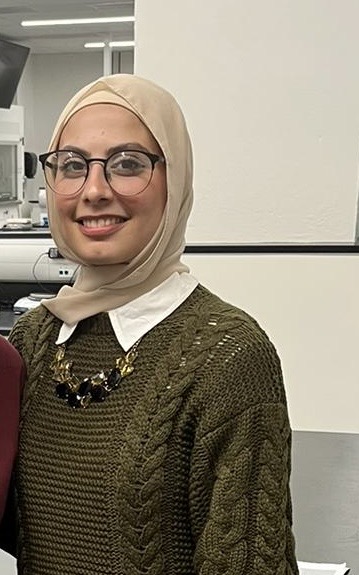
Lena Dabbas, University of Lethbridge
My name is Lena Dabbas and I am a Master’s student at the University of Lethbridge researching ways to improve the early detection of bovine spongiform encephalopathy (BSE), a fatal neurodegenerative disease in cattle. As there is currently no pre-mortem diagnostic method for BSE, my work focuses on evaluating neurofilament light chain protein (NfL) as a potential biomarker for use before clinical signs appear. NfL is released from the brain into cerebrospinal fluid (CSF) and blood during neuronal damage, and my research investigates its correlation with abnormal prion protein (PrPSc) accumulation in the brain. By comparing NfL levels in CSF and blood samples from BSE-infected cattle and healthy controls, my study aims to contribute to the development of a less-invasive, pre-mortem diagnostic tool. The findings could help reduce public health risks, prevent food chain contamination, and minimize economic losses through earlier disease detection and control.
Titre du projet : Investigating the potential use of Neurofilament Light Chain as an Early Marker for detecting BSE pre-mortem.

Mahouhognon Roméo Fassinou Bogninou
Biographie à suivre
Titre du projet : À suivre.

Maiza Sy, School of Occupational and Public Health, Toronto Metropolitan University, ON, Canada
Maiza is a second-year Master’s student of the Occupational and Public Health program at Toronto Metropolitan University, where she is conducting her research under the supervision of Dr. Ian Young. She has a deep interest in public health research, with particular focus on food safety, population health, and addressing health inequities. Her current research examines the economic and health impacts of foodborne zoonotic diseases in Canada. Through this work, Maiza examines unsafe food handling practices among Canadians in household settings. By analyzing national data, she aims to identify high-risk populations and provide evidence-based recommendations to strengthen food safety education and outreach. Maiza’s immediate goal is to engage in diverse public health research initiatives and build meaningful collaborations. She sees these opportunities as essential for developing her research skills and gaining valuable mentorship.
Titre du projet : Addressing Foodborne Zoonotic Diseases in Canada: A Foodbook 2.0 Study.

Rachael Young
Biographie à suivre
Titre du projet : À suivre.
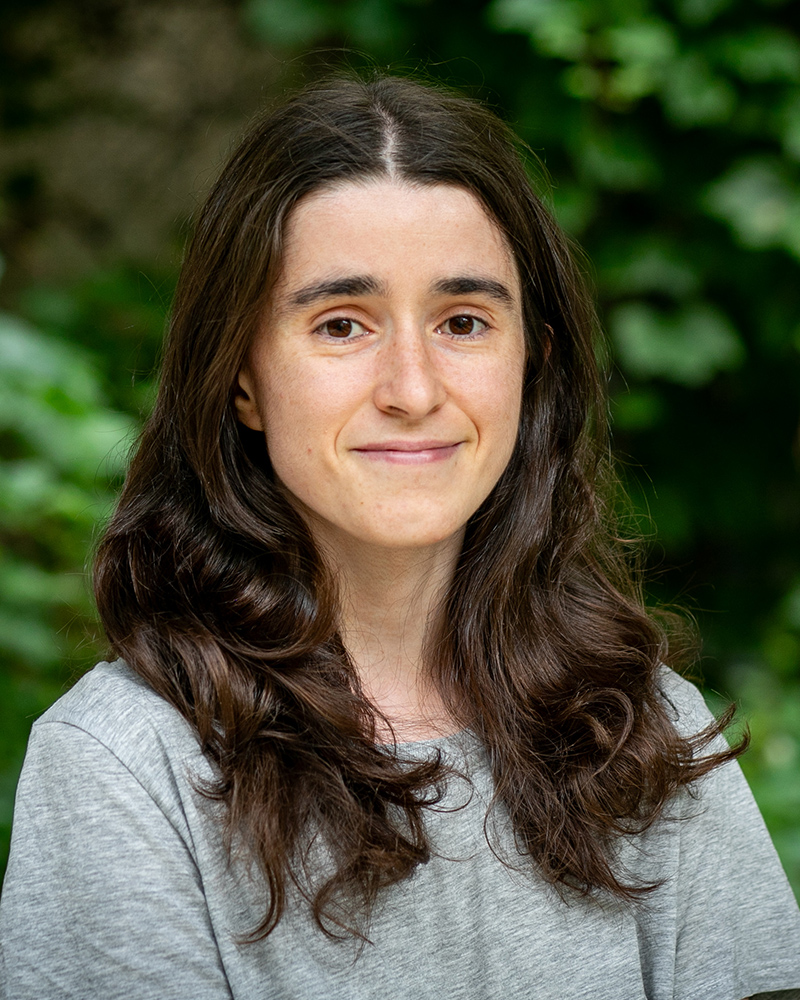
Rita Maria Quintela Tizon, Department of Veterinary Microbiology & Vaccine and Infectious Disease Organization (VIDO), University of Saskatchewan, Banerjee Lab.
Rita Quintela is a veterinarian and doctoral candidate in the Department of Veterinary Microbiology at the University of Saskatchewan. Originally from Spain, she completed her Veterinary Science degree at the University of Santiago de Compostela and volunteered in several wildlife hospitals and conservation centers before completing her Wildlife Population Health internship at the Autonomous University of Barcelona. She is currently pursuing her doctoral degree under Dr. Arinjay Banerjee’s supervision at the Vaccine and Infectious Disease Organization (VIDO). In her project, she is studying and characterizing the uniqueness of bat antiviral responses to uncover mechanisms that can be translated into both wildlife conservation measures as well as human therapeutic advancements and pandemic preparedness. Rita is also a member of the One Health Trainee Committee at the University of Saskatchewan, where she promotes multidisciplinary events and collaborations while prioritizing One Health principles. Outside of the lab, she enjoys birdwatching and playing guitar.
Titre du projet : Evolutionary and functional analysis of the type I interferon response in bats and other mammals.
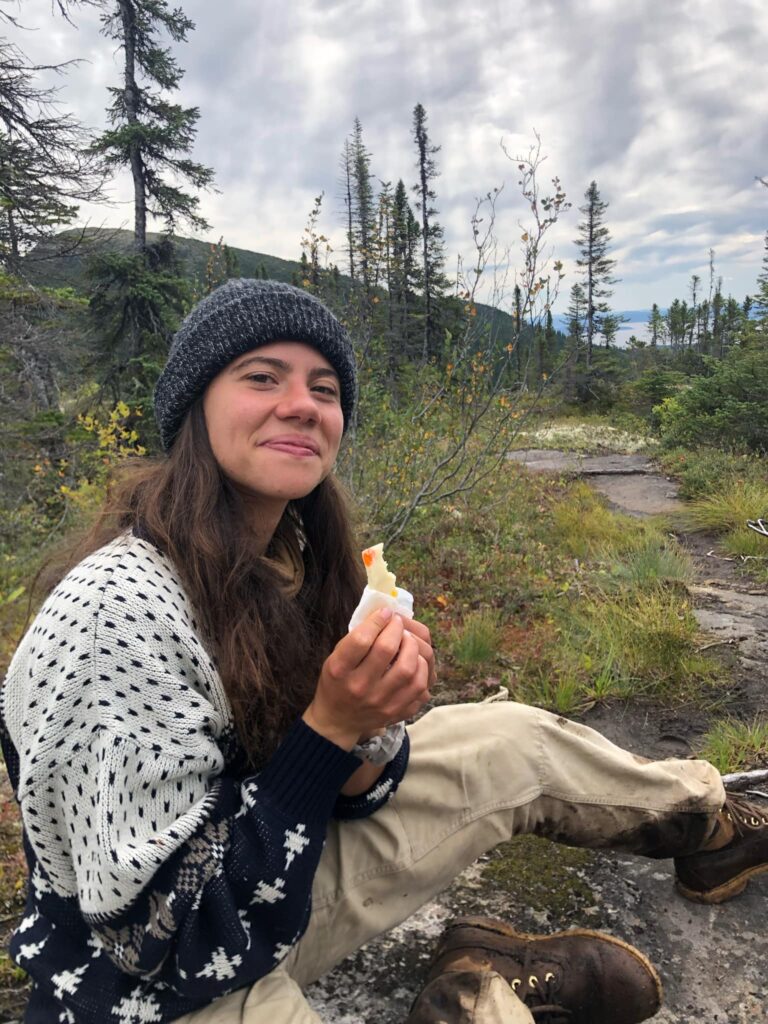
Sabrina Faubert, L’Université de Montréal
Sabrina a débuté son parcours dans le domaine de la biologie au Cégep dans le programme de Techniques de bioécologie. Depuis, elle a acquis une variété d’expériences professionnelles en tant que technicienne en conservation, en étude de la faune et en foresterie. Elle a également complété le baccalauréat intégré en environnements naturels et aménagés à l’Université Laval.
C’est avec enthousiasme qu’elle entreprend le prochain défi de son parcours : la maîtrise en sciences vétérinaires option épidémiologie. Son projet, dans le cadre du grand projet Parcs en Santé, vise l’évaluation de l’effet d’une intervention intégrée combinant l’exclusion de cerfs et le traitement acaricide des rongeurs sur le risque environnemental de maladies transmises par les tiques.
Titre du projet : Gestion environnementale du risque de maladies transmises par les tiques par l’exclusion des cervidés et le traitement pharmacologique des rongeurs.

Youngseo Jeong
Biographie à suivre
Titre du projet : À suivre.
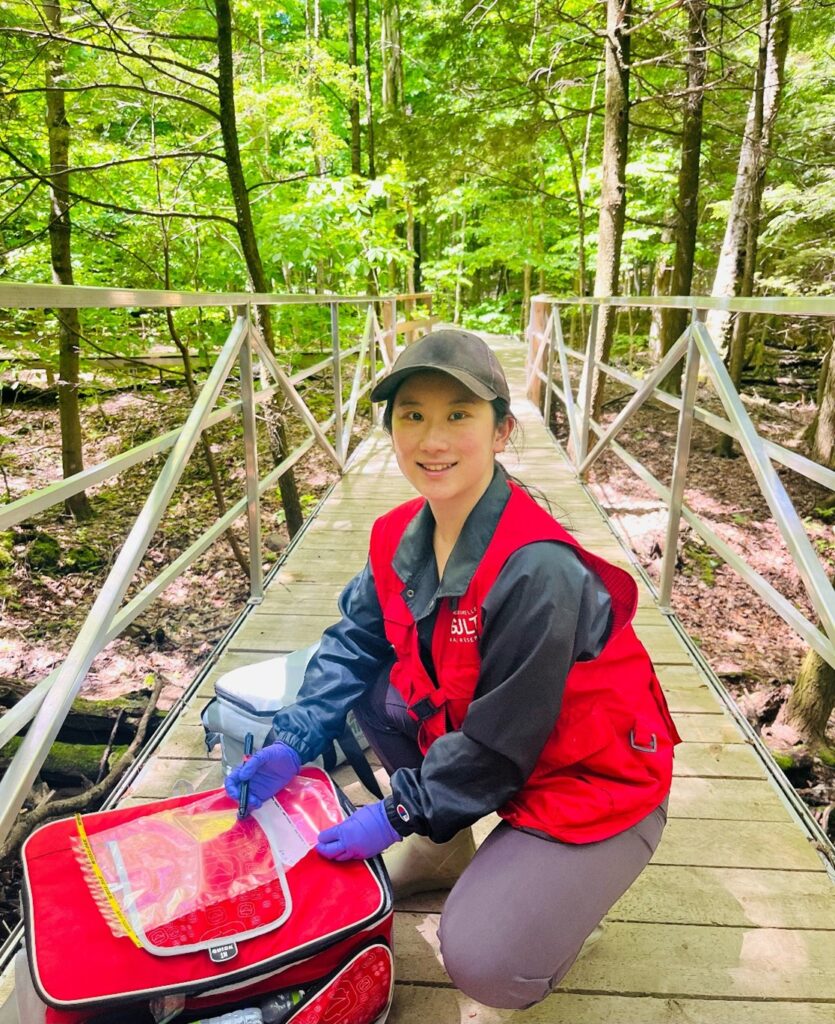
Yuxin Hu, Canadian Institute for Food Safety, University of Guelph
Yuxin is a master’s student in Food Science at the University of Guelph’s Ontario Agricultural College. She holds dual BSc degrees in Food Science and Nutritional Science from McGill University and has been a trainee in the One Health Against Pathogen (OHAP) program since 2023. Her research characterizes zoonotic pathogens and antimicrobial resistance (AMR) in wild white‑tailed deer populations using shotgun metagenomics, addressing critical knowledge gaps in Canada’s emerging zoonosis surveillance. Yuxin is working towards understanding how wildlife can be better integrated into Canada’s surveillance framework for zoonotic disease prevention and preparedness. Outside of research, she enjoys staying active on the squash court.
Titre du projet : Investigating Wild White-Tailed Deer as Reservoirs of Zoonotic Pathogens and Antimicrobial Resistance Using Shotgun Metagenomic.